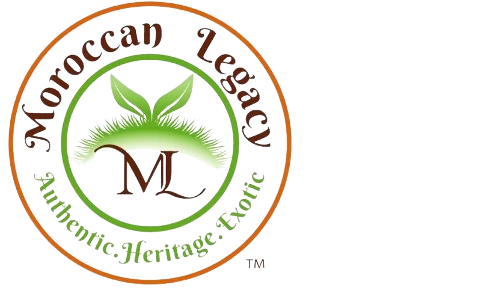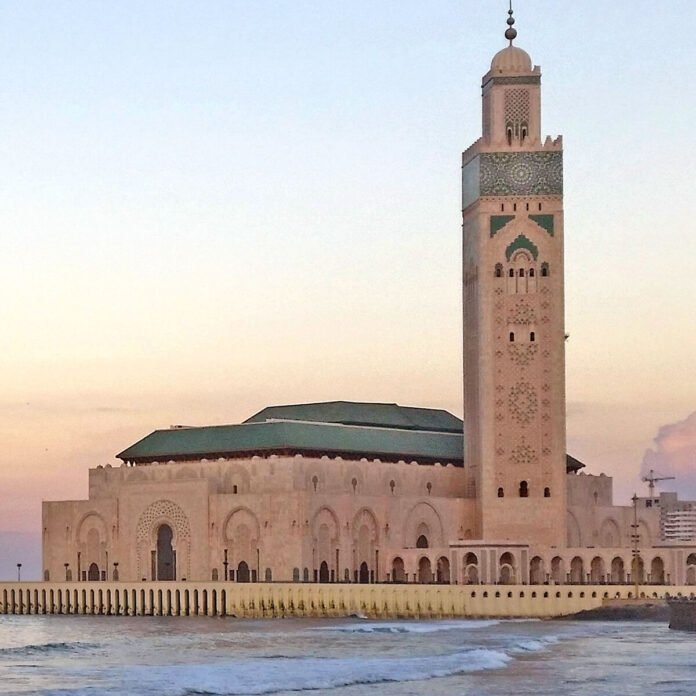Introduction
Religious Diversity of Morocco: Morocco is located in Northwest Africa and has over 36 million people. It has a rich cultural and spiritual history due to its strategic location between Europe and sub-Saharan Africa. Like many countries in the region, Morocco has experienced influences from various civilizations over centuries, which has contributed to shaping its diverse religious identity. In this blog post, I seek to explore and understand the spiritual landscape of Morocco by investigating its major religious communities and their interfaith relations.
Morocco is constitutionally a Muslim country, with Islam being the dominant religion practiced by most Moroccans. However, upon closer examination, one finds that Morocco upholds an inclusive form of Islam that accommodates religious minorities. The country also has historical communities of Christians and Jews dating back centuries.
While Islam remains preeminent, Morocco stands out for its tradition of religious tolerance and coexistence between different faiths. Through analyses of demographic data and historical context, coupled with perspectives from religious scholars and leaders, I hope to offer insights into Morocco’s rich religious diversity and the balance it has achieved between religious adherence and pluralism.
Islam in Morocco
Islam arrived in Morocco during the 7th-century Arab invasions and has been the dominant religion ever since, with over 99% of Moroccans identifying as Muslims, according to recent estimates. Moroccan culture and identity are powerfully shaped by Islamic influence, from architecture and dress to morality and social norms. Islam in Morocco follows the Maliki school of Sunni Islamic jurisprudence, and Sufism also has a significant following.
A key aspect of Islam in Morocco is the role of the Moroccan monarch, who holds the title of Commander of the Faithful. As political and spiritual leaders, the King oversees mosques and religious courts and appoints clerics. This gives the monarchy considerable influence in Islamic affairs and promotes a moderate interpretation. For example, the King issued a fatwa against Islamic State and condemned religious extremism. The close association between the monarchy and religion has helped foster a tolerant form of Islam suited to Morocco’s diverse, multi-faith society.
Sufism or Islamic mysticism is essential in people’s spiritual lives in Moroccan Islam. Sufism emphasizes God’s love and beauty over strict legal interpretation. Every year, pilgrims visit the numerous mausoleums of saints scattered across the country, seeking blessings. The most famous is the Mausoleum of Moulay Idriss in Fez, named after the 8th-century founder of the Idrisid dynasty who introduced Islam to Morocco.
For the average Moroccan Muslim, religious observance involves praying five times daily, attending the mosque for Friday prayers, fasting during Ramadan, and giving zakat or obligatory alms for the poor. Mosques serve as places of worship and as community centers where people gather. While strictly following Islamic principles, Moroccan Islam remains moderate and tolerant of differences in belief and practice among Muslims.
Religious Diversity of Morocco: Christianity in Morocco
Even though Christians comprise less than 1% of the population today, Christianity has historical roots in Morocco dating back to antiquity. Some of the earliest Christian communities existed along Morocco’s northern coast, part of the Roman province of Mauretania Tingitana. Excavated sites have uncovered remains of churches and cemeteries from as early as the 3rd century AD.
After the 7th century Arab Muslim conquests, most Christians converted to Islam, although some remained. They were granted dhimmi, or protected minority status under Islamic rule. Trading ports continued attracting European Christians through the Middle Ages as Morocco developed commercial ties. The Portuguese also controlled some coastal areas between the 15th and 17th centuries, with Catholics establishing dioceses.
Christians in Morocco are primarily foreigners, including expatriate workers and some Moroccan converts. Estimates number them between 20,000 to 40,000. The bulk reside in the main cities like Casablanca, while a few hundred remain in traditionally Christian villages such as Sidi Kacem. Many are followers of Protestant denominations in addition to Catholics and Orthodox groups.
Morocco’s Christian community coexists peacefully with Muslims as the constitution officially protects freedom of religion. Churches operate openly in major urban centers to serve members. Christians participate fully in Moroccan society and face no restrictions on worship or public display of their faith.
The excellent treatment of Christians is considered integral to Morocco’s self-image as a tolerant, moderate nation upholding religious diversity. At the same time, proselytizing Muslims is illegal to avoid potential tensions, upholding a policy of non-interference in spiritual matters. Overall, Morocco’s long Christian heritage and contemporary protections foster religious harmony.
Religious Diversity of Morocco: Judaism in Morocco
Morocco has one of the most historically significant Jewish populations in the Middle East and North Africa, with strong communities dating back over 2,000 years. At their peak in the early 20th century, Jews constituted nearly 10% of Morocco’s total population. They played an essential societal role as artisans, merchants, and scholars who lived alongside Muslims for centuries. Judaism flourished under the indigenous Berber kingdoms and later Arab dynasties who granted Jews dhimmi protections.
The ancient Imperial Cities of Fez and Marrakesh contained two of Morocco’s oldest and holiest Jewish settlements, predating Islam’s arrival. Other significant communities existed in Tangier, Meknes, Rabat, and Essaouira, which Spain’s expelled Jews established in the 1760s. Distinctive Moroccan-Jewish customs, music, cuisine, and languages, including Judeo-Arabic, evolved within these historic communities. Jewish mystics and philosophers made significant contributions to both Jewish and Islamic thought.
Today, only a few thousand Jews remain in Morocco after mass emigration to Israel following its creation in 1948. The exodus accelerated in the 1950s–70s due to political instability and the Arab-Israeli conflict. The last sizable communities persist in Casablanca and Rabat. Morocco has maintained its Jewish heritage sites, and a King-appointed Jewish adviser ensures representation. While not as numerous, Moroccan Jews retained deep historical, cultural, and family ties to the country. Their treatment exemplifies Morocco’s precedence of guaranteeing equal citizenship regardless of creed under an enlightened reading of Islam.

Religious Diversity of Morocco: Religious Coexistence and Pluralism
Perhaps most remarkably, Morocco upholds its Muslim identity while promoting an inclusive form of multi-faith pluralism unique in the region. All religious communities coexist harmoniously due to strong traditions of tolerance rooted in the Maliki school of jurisprudence. Historian Ali Salam describes it thus: “Moroccans consider pluralism not just as a reality but also as a value; it’s part of our identity… This pluralism is based on a fine internal balance and pragmatic policies adopted by the King and previous rulers for centuries.”
The average Moroccan respects others’ religious freedom based on Islamic principles of protecting dhimmis or non-Muslim minorities. Discrimination, hostility towards other faiths, or enforcing strict Islamic law on non-Muslims is frowned upon culturally. Instead, a spirit of live-and-let-live prevails where diverse communities celebrate each other’s festivals. Such inclusive pluralism stems from Morocco’s regard of faith as a personal matter between individuals and God, not something the state imposes.
Some experts credit the monarchy’s involvement in Islamic institutions as helping safeguard this equilibrium. As the Amir Al-Mu’mineenor commander of the faithful, kings steer official interpretation and forbid extremism. An interfaith council of religious leaders exists to foster understanding. Overall, the impact of Morocco’s unique brand of tolerant, enlightened Islamic traditionalism benefits society by discouraging fanaticism while respecting diversity. It has much to offer a world increasingly polarized along religious lines.
Interfaith Dialogue and Understanding
Morocco actively promotes interfaith harmony through the King Mohammed VI Foundation for Interreligious Dialogue. Established in 2007, the Foundation cultivates respect, cooperation, and friendship between followers of all faiths worldwide. It funds initiatives for education, shared worship spaces, media campaigns, and international conferences. Academics research comparative religious topics while exchange programs bring international students.
The Foundation embodies Morocco’s principle that religion should unite, not divide people. It maintains that sustaining diversity requires moving beyond just tolerating differences to positively engaging and learning from one another. This reflects the Islamic notion of ahimsa, or causing no harm, and the universal desire for peaceful coexistence. Events organized bring together Muslim scholars, Christian leaders, rabbis, and others to address pertinent issues through benevolent discussion.
At a local level, various interfaith friendship councils facilitate grassroots understanding among faith communities within Moroccan cities. Representatives meet regularly for Iftarfeasts during Ramadan or other shared religious holidays to build trust and familiarity between neighbors of various backgrounds. Joint worship at important sites promotes pilgrimages as opportunities to foster mutual respect through celebrating humanity’s spiritual diversity in a single nation. Such initiatives indicate how stable diversity emerges from cultivating harmony within diversity through open-hearted contact between people of goodwill across all divides.


